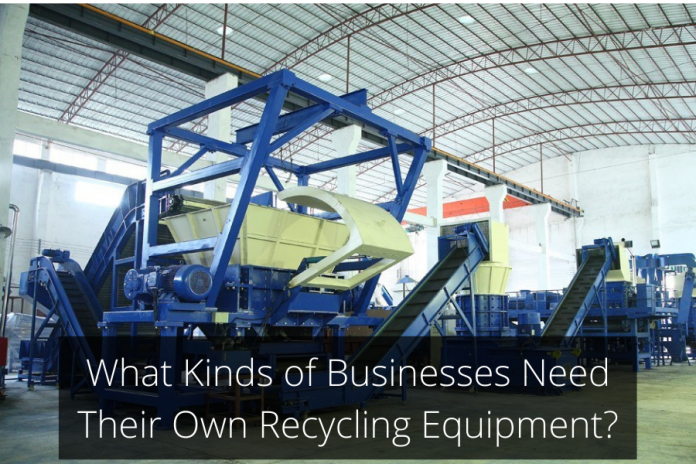There are many things to think about and plan for when you are starting your own business—overheads, target markets, marketing strategies, supply chains, hiring, accounts, cashflow forecasts, etc. One aspect of running a business that is often overlooked, yet is vital to plan for, is waste management. Waste management is an important factor to consider when it comes to starting your own business. All kinds of businesses produce some level of waste from carrying out daily operations.
While many businesses may be able to simply use the recycling and waste collection services offered by local councils, businesses that produce higher quantities of waste and/or specific types of waste material are likely to find these services insufficient for their needs. Producing waste faster than it can be collected can cause many problems, such as needing to store large quantities of waste on the business premises.
Some businesses can really benefit from investing in their own onsite recycling equipment, such as recycling baler machines, in order to deal with this problem. But which types of businesses are most likely to require their own recycling equipment? Here are some of the most common.
Factories
Factories are some of the businesses most likely to require additional waste management solutions due to the amount of waste typically produced by most manufacturing processes.
Warehouses
Warehouses are used to store large quantities of items, usually in packaging. When this packaging needs to be disposed of, recycling equipment is often needed.
Supermarkets
Supermarkets often produce an incredibly large amount of waste. Much of this waste is often expired food, which requires bespoke waste management services to dispose of.
Retail Outlets
Retailers usually have to dispose of large amounts of packaging that stock arrives in. While smaller retailers may be able to get by with just the local recycling services available, larger stores can often benefit from their own recycling equipment.
Restaurants and Cafes
Restaurants and cafes usually produce a significant amount of waste, much of which is food waste. While some restaurants and cafes can simply use dumpsters (usually located at the back of the establishment), many others require additional recycling solutions.
Bars
Empty beer kegs, bottles, and broken glasses are common types of waste that bars need to dispose of. In some cases, old furniture even needs to be removed. As glass can be difficult and dangerous to dispose of, some bars can benefit from their own recycling equipment.
Office Blocks
Although you may not think that offices produce as much waste as businesses such as factories and supermarkets, they can, in fact, produce a surprisingly large amount. While paper can be easily recycled in small to medium quantities, items such as broken electronics and office equipment can require more bespoke recycling solutions.
Drugstores, Hospitals, and Pharmaceutical Companies
Medical waste can be one of the most difficult types of waste to correctly dispose of. Items such as soiled bandages and used needles can be hazardous and require specific waste disposal solutions to deal with them safely.





































